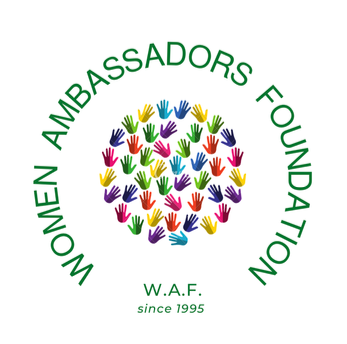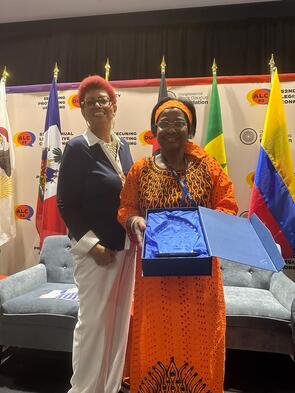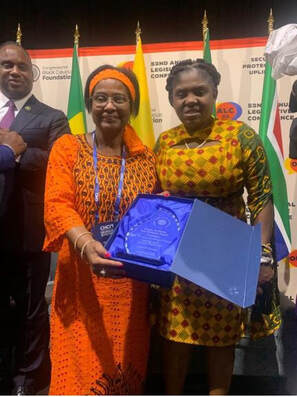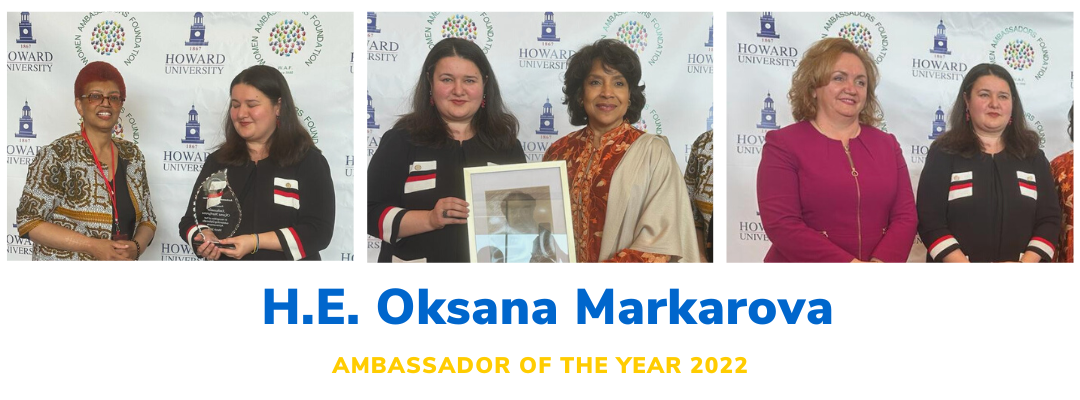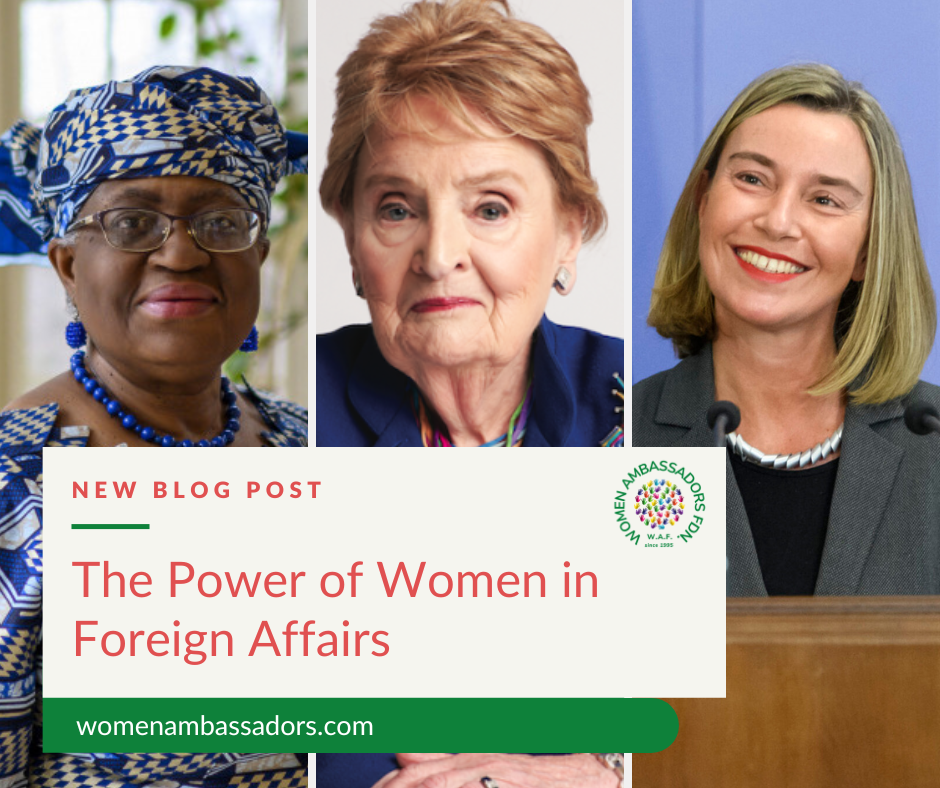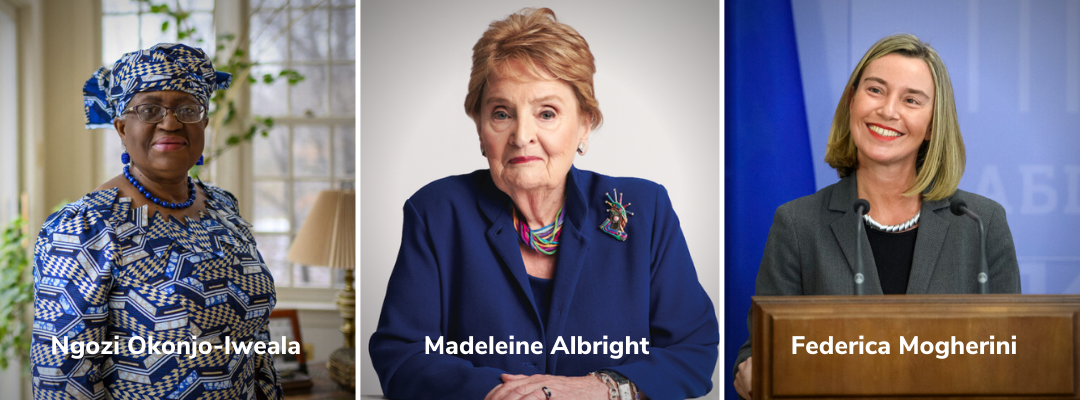|
The Women Ambassadors Foundation and Howard University Washington DC have bestowed the prestigious 'Peace, Inclusion and Diversity' Prize upon Dr. Pierrette Herzberger-Fofana, a distinguished Member of the European Parliament and Co-Chair of its 'Anti-Racism and Diversity Inter-fractional Working Group' (ARDI). This accolade recognizes the enduring dedication of the Afro-German politician to fight racism, discrimination, and promote diversity.
Dr. Herzberger-Fofana received this honor during the 29th Afro-European/African American Leaders Forum in Washington, where she was jointly presented with the award by Her Excellency Francia Marquez, First Vice-President of Colombia, and Congressman Jonathan Jackson, the esteemed son of Jesse Jackson. The event, hosted by the Congressional Black Caucus and Howard University Washington DC, marked a significant celebration of Dr. Herzberger-Fofana's impactful contributions. Read more here: www.theafricancourier.de/news/europe/congressional-black-caucus-honours-herzberger-fofana-in-washington//
0 Comments
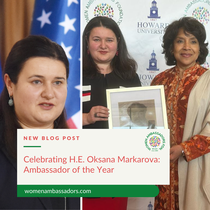 The Women Ambassadors Foundation is happy to congratulate H.E. Oksana Markarova on being awarded the Ambassador of the Year. Oksana has proven to be an exemplary role model for women in diplomacy. Her dedication to represent Ukraine with excellence, promote economic and political ties between nations, and create cultural exchange is truly inspiring. Her success is a testament to the value of hard work, determination, and a commitment to excellence. At the Women Ambassadors Conference, we had the honor of hosting Oksana as she shared her insights and experiences with our attendees. Her presence and contribution were highly valuable, and we were proud to have her as a featured speaker. We are confident that her work will continue to inspire and empower women in diplomacy for years to come. Once again, congratulations to H.E. Oksana Markarova on this incredible achievement. Our team, at the Women Ambassadors Foundation looks forward to supporting her diplomatic work and that of her colleagues. The field of foreign affairs and diplomacy has long been considered a male-dominated sphere. However, over the years, women have been breaking barriers and shattering glass ceilings in this field. Today, women are playing significant roles in international diplomacy and foreign affairs, driving change, and making an impact in a traditionally male-dominated arena. In this article, we'll explore the power of women in foreign affairs and their contributions to international diplomacy.
Historically, women have faced significant barriers to participation in foreign affairs and diplomacy. It was not until the 20th century that women began to break into the field, and even then, they were often limited to administrative roles. However, over time, women have continued to make significant strides, and today, they occupy prominent positions in foreign affairs and diplomacy. One of the most notable examples of women's power and influence in foreign affairs is Madeleine Albright. Albright was the first female Secretary of State in the United States and served under President Bill Clinton from 1997 to 2001. During her tenure, Albright played a crucial role in shaping U.S. foreign policy and was a key player in the negotiations that led to the Dayton Accords, which brought an end to the Bosnian War. Albright's tenure as Secretary of State paved the way for other women to follow in her footsteps. Today, women hold key positions in foreign affairs and diplomacy around the world. In 2017, Federica Mogherini was appointed as the European Union's High Representative for Foreign Affairs and Security Policy, becoming the first woman to hold the position. Similarly, Ngozi Okonjo-Iweala was appointed as the Director-General of the World Trade Organization in 2021, becoming the first woman and the first African to hold the position. Beyond these high-profile examples, women are making a significant impact in foreign affairs in other ways. For example, women are increasingly being appointed as ambassadors and diplomats, representing their countries on the international stage. In many cases, women's unique perspectives and experiences have led to innovative and effective approaches to diplomacy. In addition to representation, women are also driving change in foreign affairs through their advocacy and activism. Many women's organizations are working to promote women's rights and gender equality around the world. For example, the United Nations has a number of programs that focus on empowering women and promoting gender equality in all aspects of society. Women's organizations are also working to address issues such as gender-based violence, access to education and healthcare, and economic empowerment. Despite the progress that has been made, women still face significant barriers to participation in foreign affairs and diplomacy. For example, women may face discrimination and bias in hiring and promotion processes, and they may also face challenges balancing their work with family responsibilities. These challenges are particularly acute for women from marginalized communities, such as women of color, LGBTQ+ women, and women with disabilities. However, despite these challenges, women continue to make progress in foreign affairs and diplomacy, and their contributions are increasingly being recognized and celebrated. As more and more women enter the field, they are bringing diverse perspectives and experiences, driving change, and making a significant impact on the world stage. In conclusion, the power of women in foreign affairs is significant and growing. Women are making significant contributions to international diplomacy, driving change through their advocacy and activism, and breaking barriers in a traditionally male-dominated field. As more and more women enter foreign affairs and diplomacy, they are paving the way for future generations and helping to create a more equitable and just world. |
Archives |
HoursMonday-Friday:
9am - 5pm |
Telephone+1 (202) 491 2664
|
|
